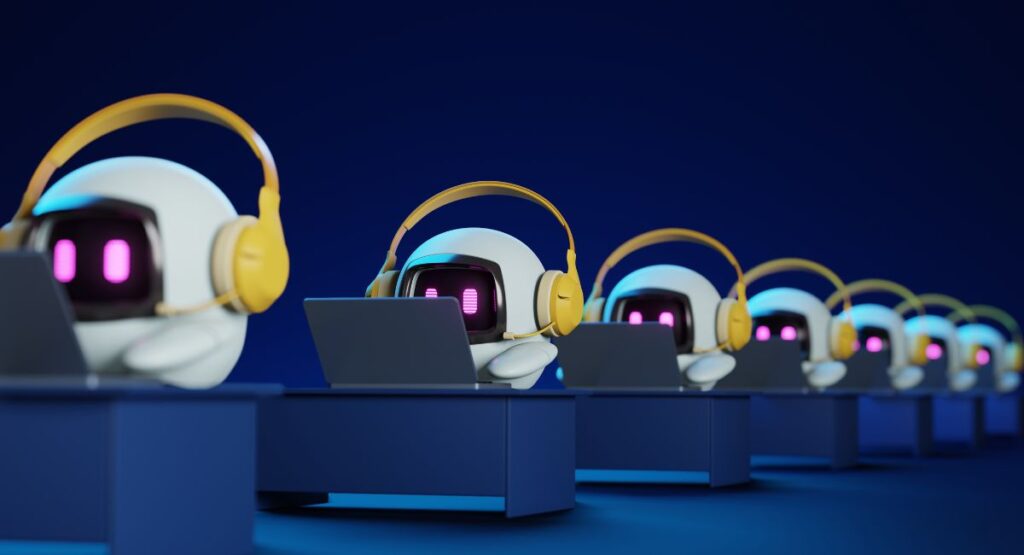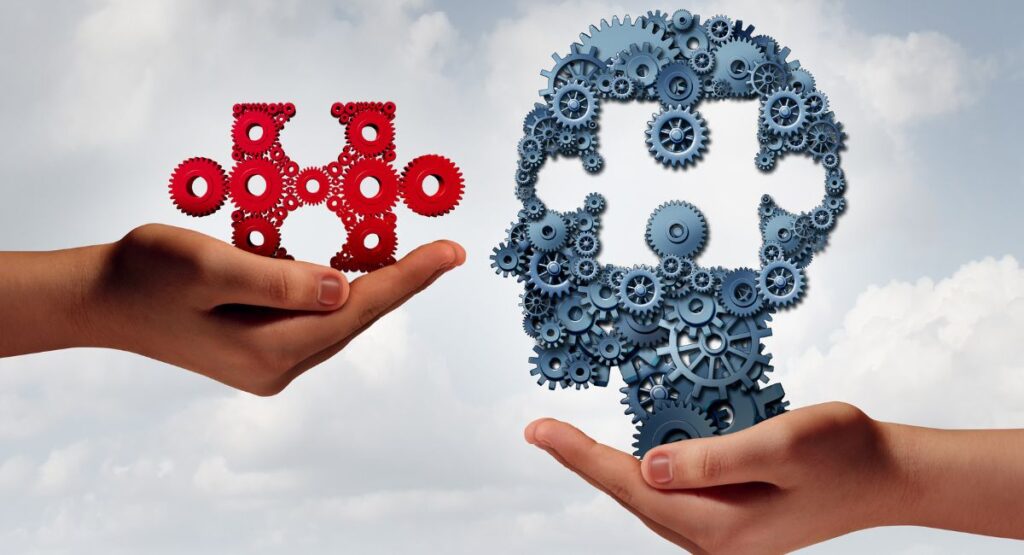Staying ahead of the curve is essential in the rapidly evolving business landscape. One technology that’s making waves and reshaping the future of business is ChatGPT. In this article, we’ll delve into the pivotal role ChatGPT plays in modern business operations, from enhancing customer interactions to boosting productivity.
Table of Contents
ChatGPT’s Evolution
ChatGPT was started by OpenAI, a company founded in 2015 by several people, including Sam Altman, Elon Musk (no longer a part of the project), Greg Brockman, Ilya Sutskever, and several research scientists and engineers. OpenAI started as a non-profit AI (artificial intelligence) research organization set on creating artificial general intelligence (AGI).
In June 2018, OpenAI released GPT-1. This model was the most advanced AI language model at the time. This model was trained with books and could perform certain tasks that included reading comprehension and commonsense reasoning.
Next came GPT-2 in February 2019. This version of ChatGPT was more advanced and was trained on information from the Internet. It was able to perform a wider range of tasks. While GPT-2 was more advanced, OpenAI didn’t release this version to the public. They were concerned about the possible misuse of the AI; however, OpenAI did release a smaller model version for research.
GPT-3 was the first version of ChatGPT released to the public in 2020. ChatGPT was even more powerful than past models, and there were concerns that the chatbot could put out disinformation and contain biases. Due to these concerns, OpenAI released GPT-3 through an API for public use.
The following versions of ChatGPT that were developed were GPT-3.5 and GPT-4.0. The chatbot was fully released to the public in November 2022.
Today, the chatbot is one of the most advanced AI models available to the public. ChatGPT can perform any number of tasks, including language generation, text completion, summarization, translation, creative writing, and so much more, making this a valuable tool for businesses of all sizes across numerous industries.
In the following sections, we’ll take a look at various ChatGPT applications that businesses are now using.
Applications in Customer Service
Businesses are finding several beneficial uses for ChatGPT in their customer service operations, including the following:
Multilingual Support
ChatGPT gives businesses multilingual support to use for customer service. The language model has extensive language capabilities that can make it easier for companies to work with customers who speak different languages. In addition, the chatbot can be trained to speak a number of languages and translate messages in real-time.
Sentiment Analysis
ChatGPT can also discern when customers are dissatisfied or unhappy with a product or service. The chatbot uses NLP (natural language processing) and text mining to determine the emotional context of written text. The AI can be trained to recognize a broad range of emotions and provide the correct customer response.
Responses to Customer Inquiries & Complaints
ChatGPT can be trained to recognize customer complaints involving quality, shipping issues, billing errors, and more. When the chatbot receives the message, it analyzes the contents and creates a response that addresses the customer’s issues. The AI can also offer solutions to the customer’s problems.
Examples of Companies Using ChatGPT for Customer Service

- Expedia: uses AI to help customers make travel plans for vacations, business, and more. The chatbot makes customers feel they are speaking with a friendly travel agent.
- Microsoft: uses ChatGPT to power its Bing search engine, allowing users to interact with the conversational chatbot to seek information online.
- DuoLingo: uses ChatGPT as a language instruction for students learning a new language. The chatbot works in much the same way as a human tutor.
Boosting Productivity
Businesses are also finding ways for ChatGPT to boost employee productivity, especially with more repetitive tasks that can take a large amount of time. Here are some examples of how the chatbot can boost productivity in the workplace:
Drafting Emails & Reports
ChatGPT can quickly generate emails, reports, and more in a professional manner. The chatbot also allows employees to customize and modify reports and emails as necessary.
Use ChatGPT to Learn New Skills
The chatbot also helps employees learn new skills or reskill in the workplace. ChatGPT can provide customized learning and materials, allowing employees to learn and develop their skills on the job.
Meeting Summaries & Action Items
ChatGPT can also be used to “listen” to a virtual meeting and create a summary that includes action items for each participant. Follow-ups are more timely, and all team members are kept in the loop and working together to reach a common goal.
Personalized Marketing and Recommendations
Many organizations are also discovering that they can use ChatGPT to enhance their marketing efforts in the following ways:
Creates personalized experiences: the chatbot can generate personalized marketing messages and recommendations based on a customer’s preferences and behavior. This capability enables the company to deliver more targeted, relevant marketing messages to each customer
The result can be an increase in conversion rates and revenues.
Engagement: ChatGPT can also effectively engage with the customer in their own language naturally. The chatbot can respond to customer inquiries, offer support in real-time (such as searching for a lost package), and more.
Lead generation: the chatbot can generate leads by offering potential customers relevant information and resources. A business can then “nurture” these customers more effectively, leading to increased conversion rates and revenues.
Examples of companies using ChatGPT for marketing and recommendations:
- Salesforce: uses ChatGPT to write emails, schedule meetings, offer customer insights, and more.
- Air India: will use the chatbot to provide customers with FAQ information, pilot briefings, and more.
- Shop: is an e-commerce app that has created a shopping assistant with ChatGPT. The assistant helps customers make purchases by asking questions, such as inquiring about their budget, preferences, and more.
Ethical Considerations

The use of ChatGPT is expanding quickly in the business world; however, some ethical implications go with this technology. In this section, we discuss some ethical issues that companies must consider as they use the chatbot.
Bias in Training Data
As ChatGPT is trained on various data and information found online, it’s possible that it could develop certain biases, depending on the material used to train the chatbot. What do we mean by “bias?” Bias is the support or opposition of a particular person or people in an unfair way.
The material used to train ChatGPT may be full of bias. A simple example is if the chatbot is trained on material only written or created by men. The language model may not perform as well on text created by women, or ChatGPT could generate discriminatory text towards women.
It’s also possible that data used to train the AI could contain biased concepts. For instance, if the data includes the word “criminal” when referring to a particular race of people, the chatbot could generate information that associates crime with these people.
The training data should be free of bias to avoid ChatGPT generating text containing biases and discrimination against people.
Misinformation & Disinformation
Another ethical issue of great concern when using ChatGPT is that the language model could generate information that contains misinformation and disinformation. The chatbot is able to create human-like written text; however, the information could be inaccurate or false. This is a huge issue if the text is used to spread disinformation and misinformation.
An example of this problem is that ChatGPT to create fake news articles and social media posts to mislead people. Furthermore, the chatbot can generate text suitable for phishing attacks, impersonating a real person or business, and more.
These issues make it more challenging to discern whether the information is real or fake.
Privacy Concerns
Privacy concerns are another primary ethical consideration with ChatGPT. The AI uses large amounts of text and data to generate specific responses; some of this data could contain sensitive information. Sensitive information could include personal information, sensitive company data, etc.
Job Displacement
Many are also concerned that ChatGPT may cause major job displacement issues. The chatbot can perform many routine tasks that humans once did. Some businesses are starting to rely more on the automation AI provides rather than humans.
Some potential jobs that the chatbot could directly impact include writing, translating, data entry, image creation, and more.
Chatbot users must act responsibly and use the technology only in ethical ways. It’s essential, for instance, that a company is transparent about its use of AI, including:
- How the chatbot is trained
- The data used to train ChatGPT
- The data should not contain biases or discriminate
- Whether or not privacy controls are in place
The ethical use of chatbots is an issue that requires much study and consideration. Any organization that relies on AI needs to make this completely transparent to its partners and customers. Chatbot ethics is a relatively new area that will continue to develop in the coming months and years.
ChatGPT in Website Localization and Translation

One business sector enjoying significant benefits of using ChatGPT is website localization and translation. Translation agencies have found that AI technology can quickly and accurately translate and localize websites. In addition, it’s easier and faster than ever to localize and translate a website into multiple languages.
With faster website translation and localization services, translation agencies can handle more work, increase customer satisfaction, and see an increase in revenues. ChatGPT helps save on costs for both the customer and the translation company. Not only that, but translations are also more accurate and can be customized for specific target audiences.
FAQ
What is ChatGPT, and How Does It Work?
ChatGPT is an AI language model that understands and processes human language. The chatbot works by analyzing vast amounts of information and learning the patterns in human language that can be used to generate responses to human inputs.
How Can ChatGPT Benefit My Business?
There are many ways ChatGPT can benefit your business, including:
- Improving marketing efforts & customer care
- Boosting productivity by automating many routine tasks
- Website translation and localization to reach new markets
- And much more
Is ChatGPT Suitable for all Businesses, Regardless of Size?
Yes! ChatGPT is an excellent tool for businesses of any size and any industry. This chatbot is especially beneficial for companies that deal with large amounts of data analysis, customer service interactions, and more.
What are the Ethical Considerations When Implementing ChatGPT in Business Operations?
As mentioned above, some of the ethical considerations of implementing ChatGPT include:
- Privacy issues (personal information and/or sensitive company information)
- Using training data that contains biases, disinformation, or misinformation
- Job displacement
- Malicious content generation
- Being transparent with partners and customers that you use ChatGPT and how it’s used
Can ChatGPT Integrate with Existing Business Systems?
Yes! Here are some business systems that are excellent candidates for integration with ChatGPT:
- CRM (customer relationship management) systems
- Project management tools
- Instant messaging platforms
- Human Resources management
- E-commerce platforms
- And more
Conclusion
In the dynamic business world, leveraging cutting-edge technology is essential for staying competitive. ChatGPT’s remarkable capabilities in customer service, productivity enhancement, personalized marketing, and website localization & translation make it a game-changer for businesses of all sizes.
As we look to the future, it’s clear that ChatGPT will continue to play a pivotal role in shaping the business landscape. Embracing this technology can lead to enhanced customer experiences, streamlined operations, and a brighter future for your business.
Read More
